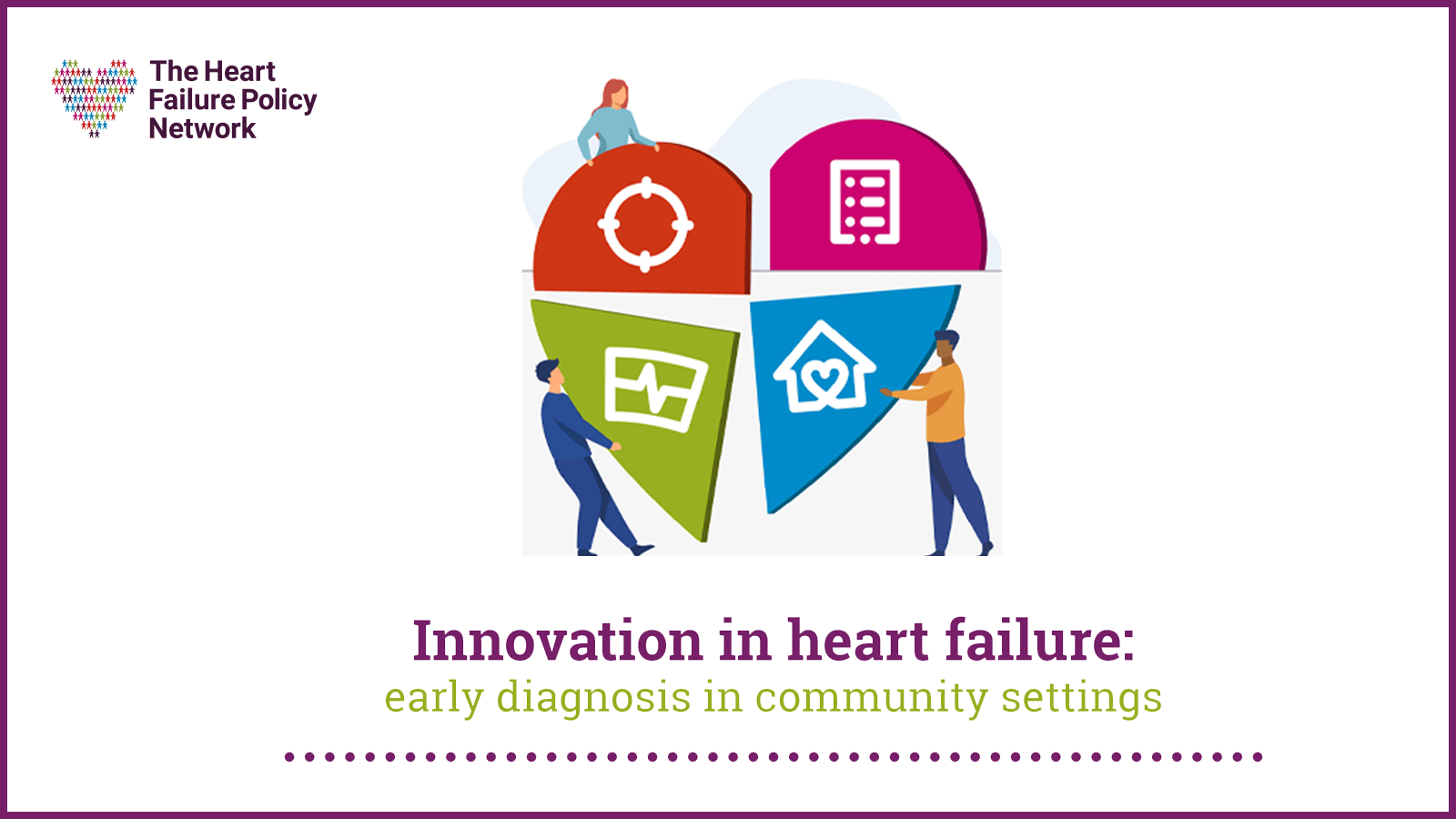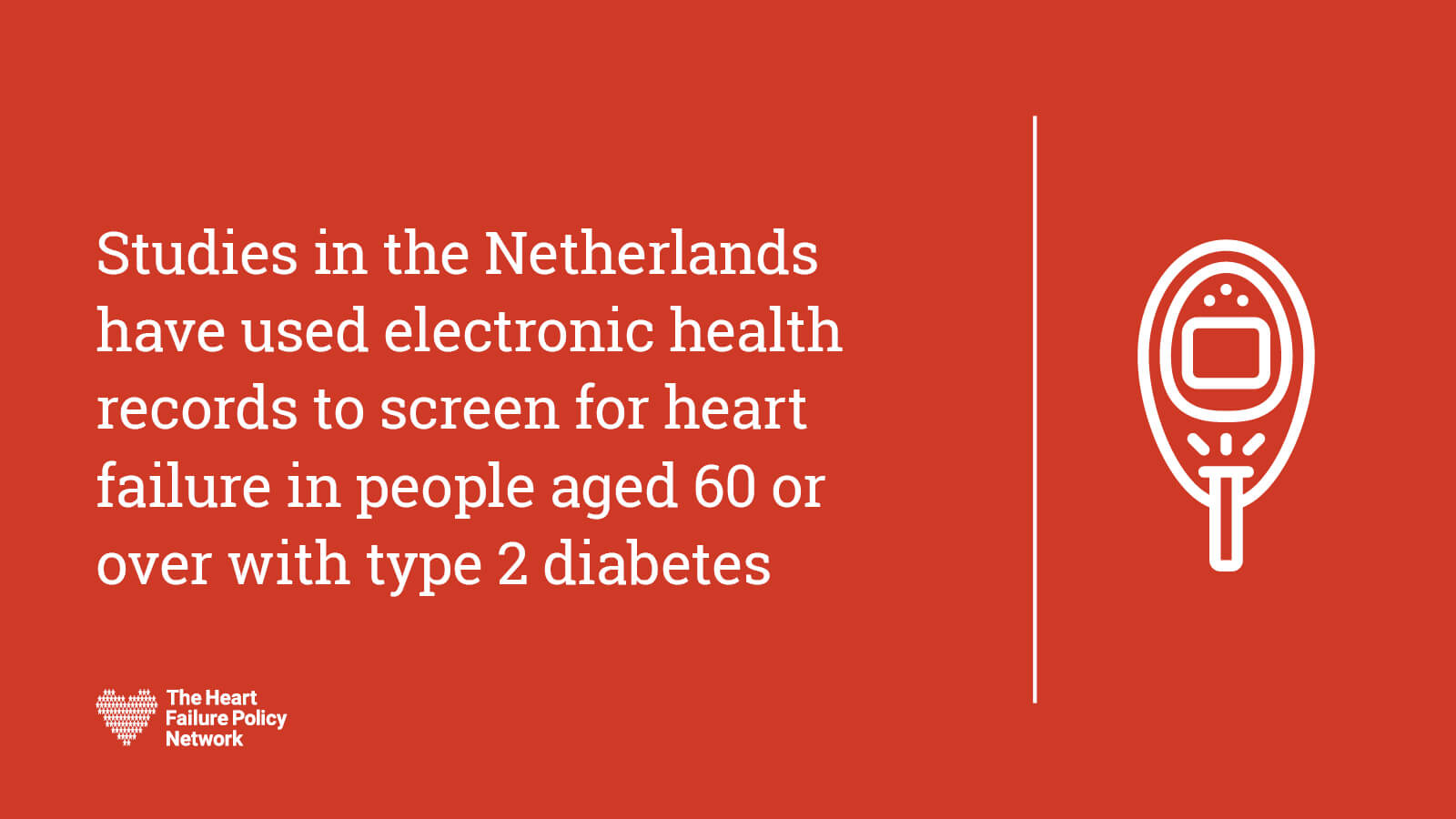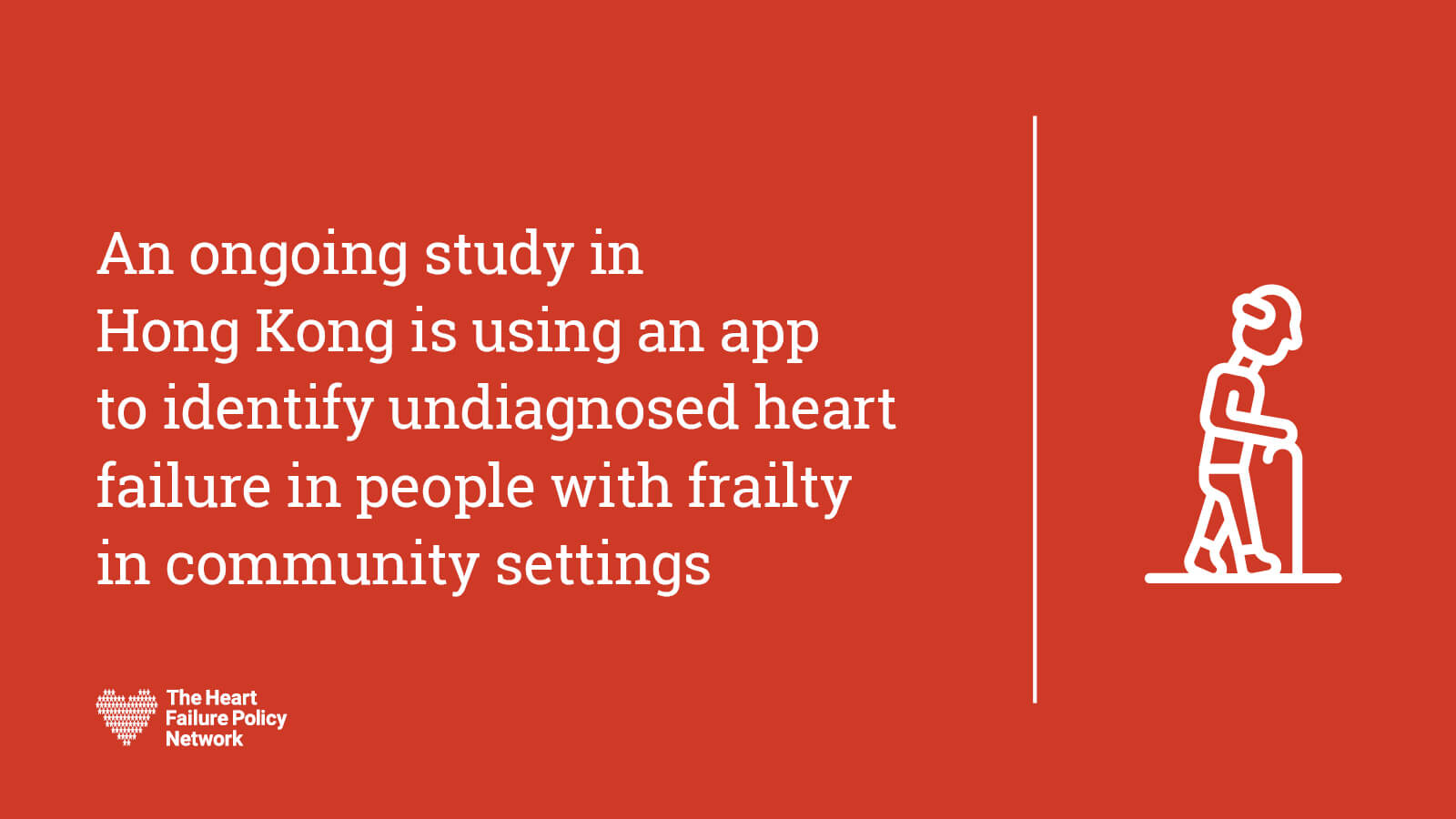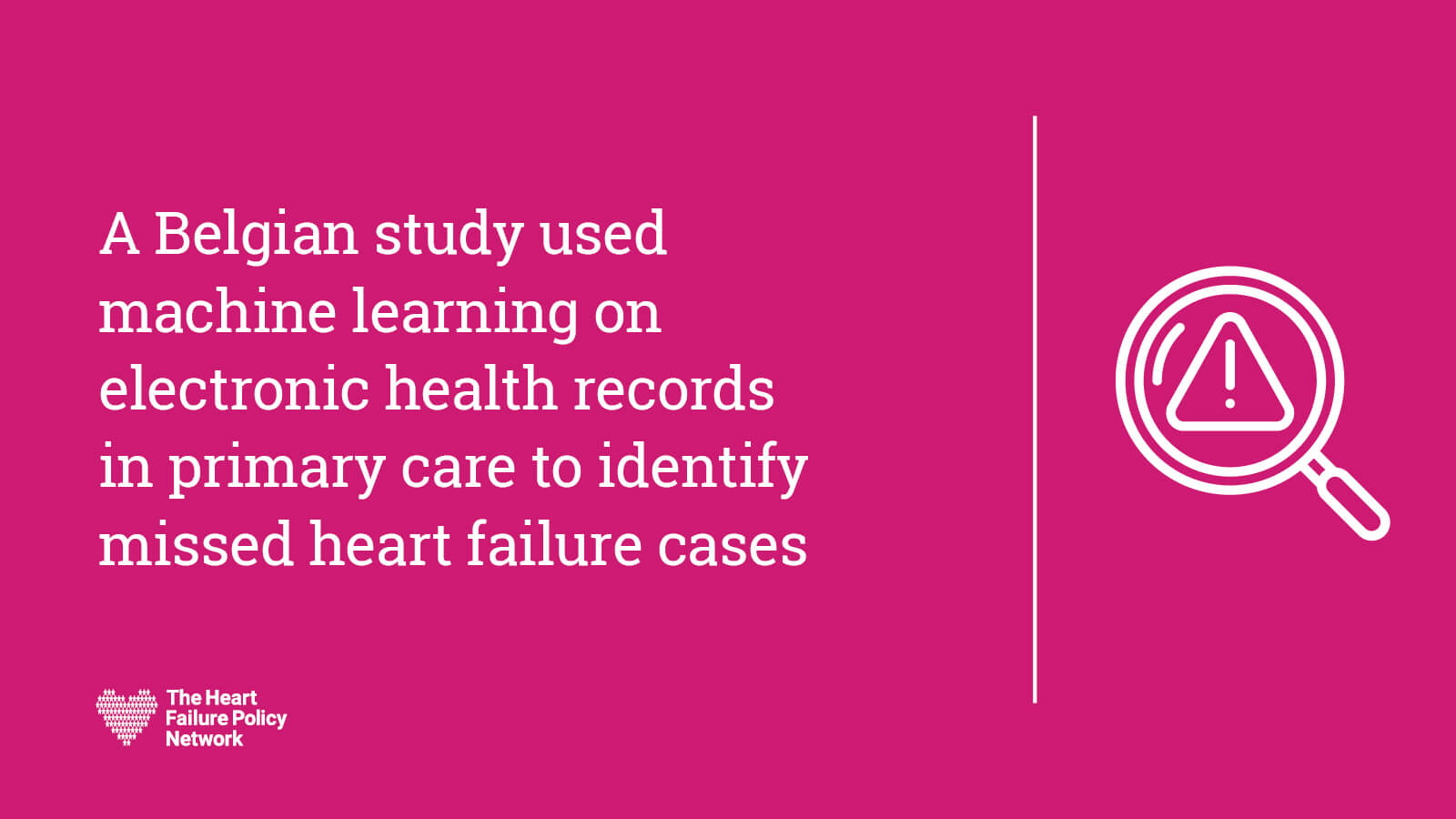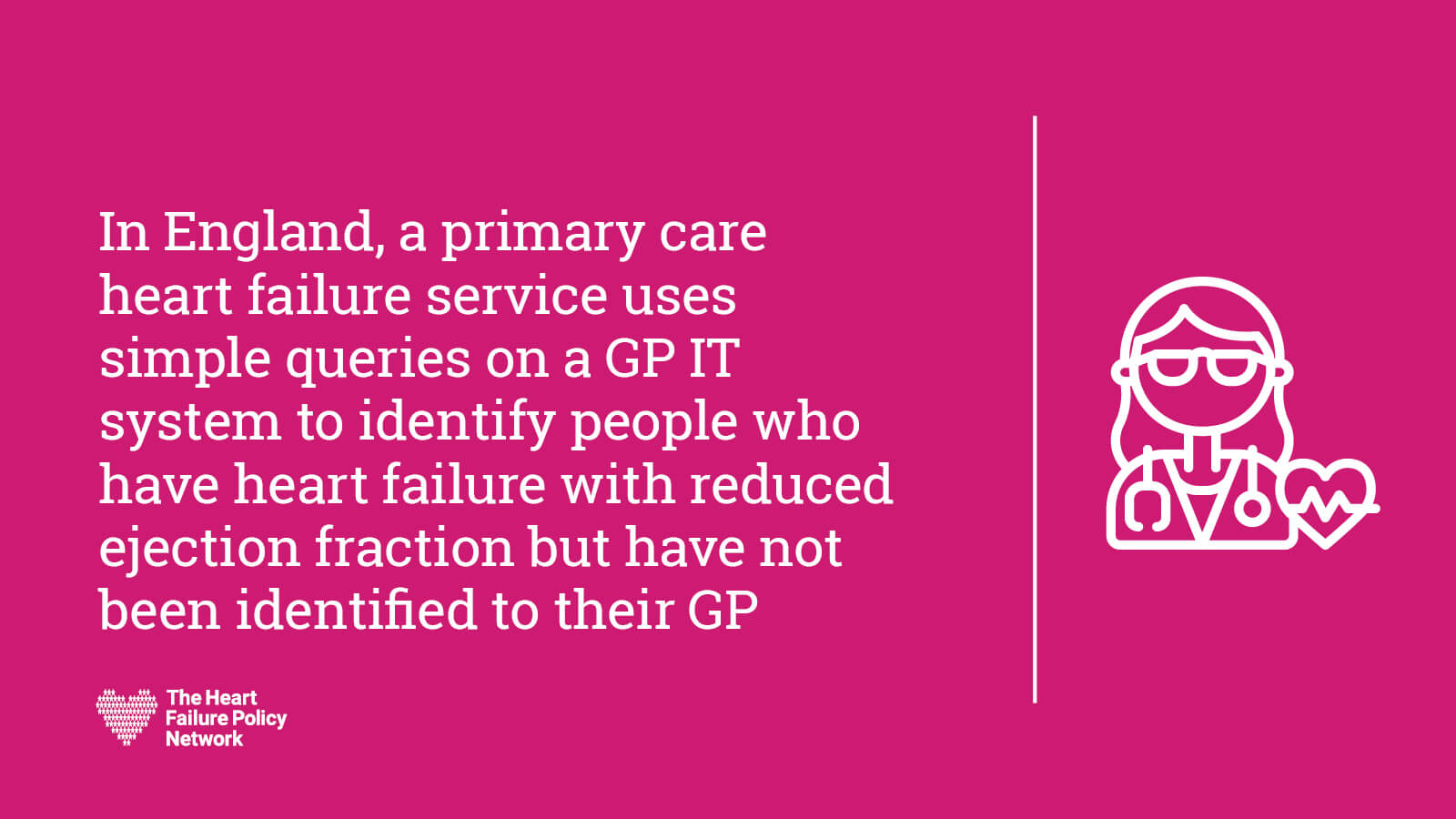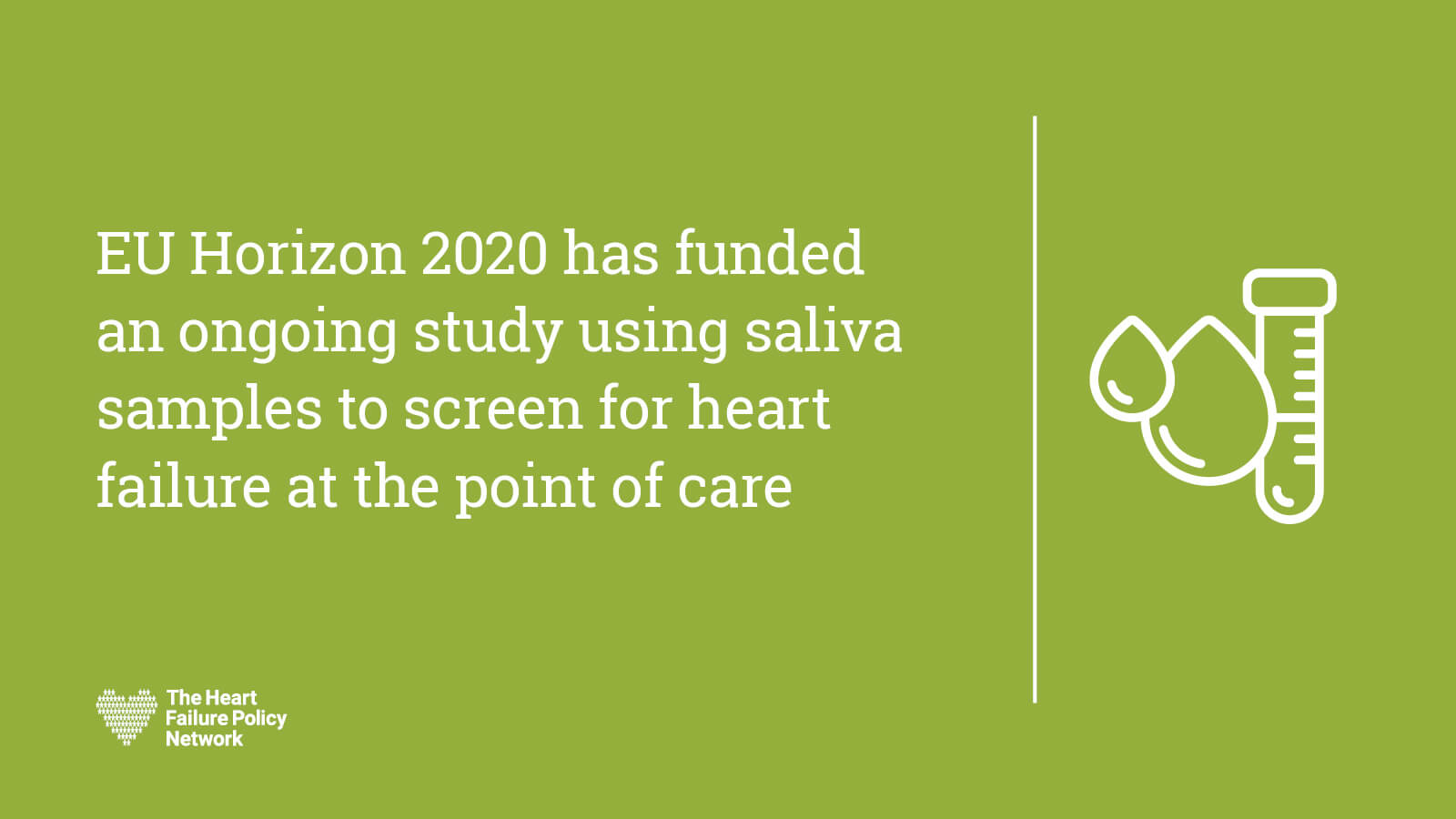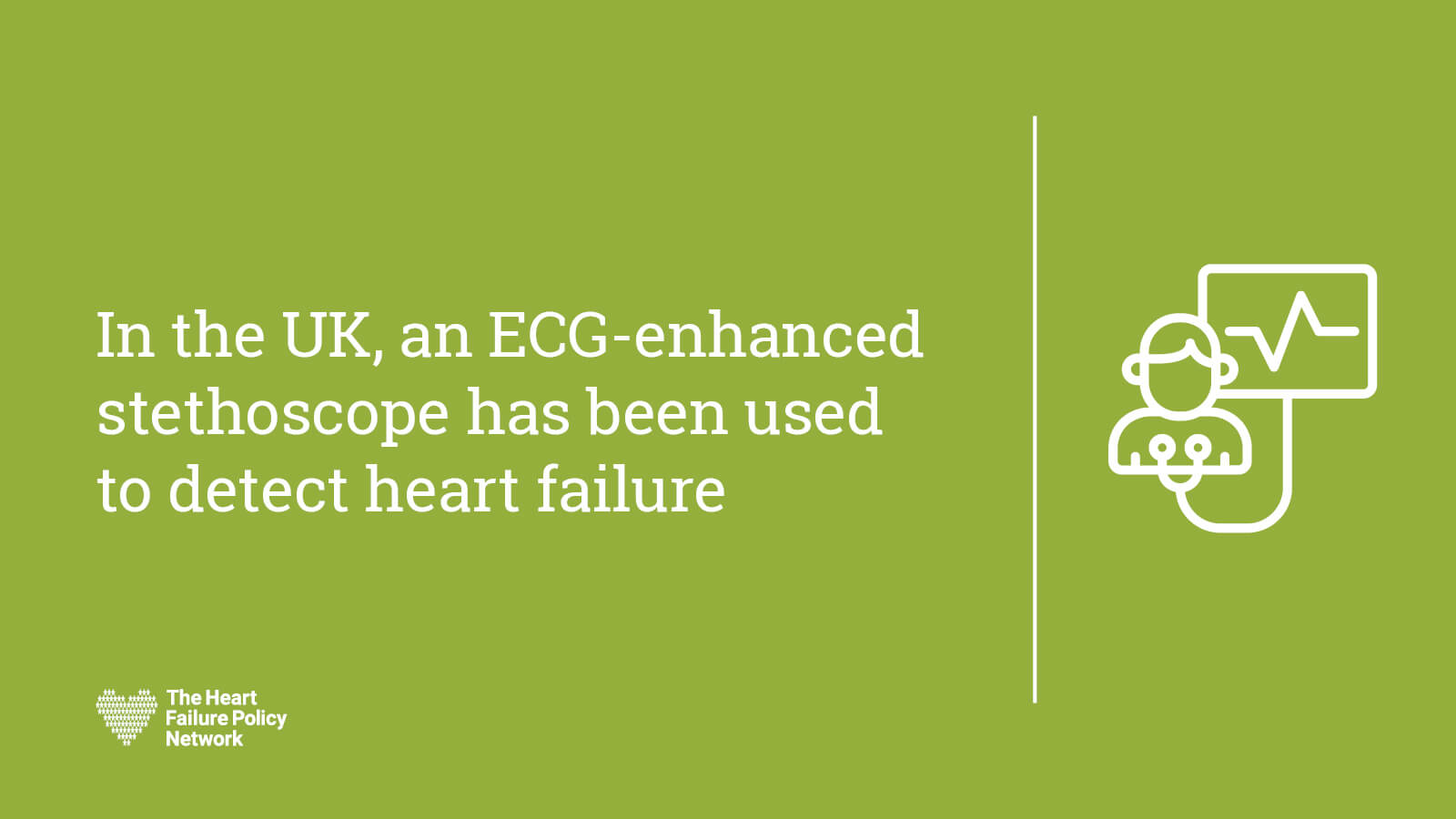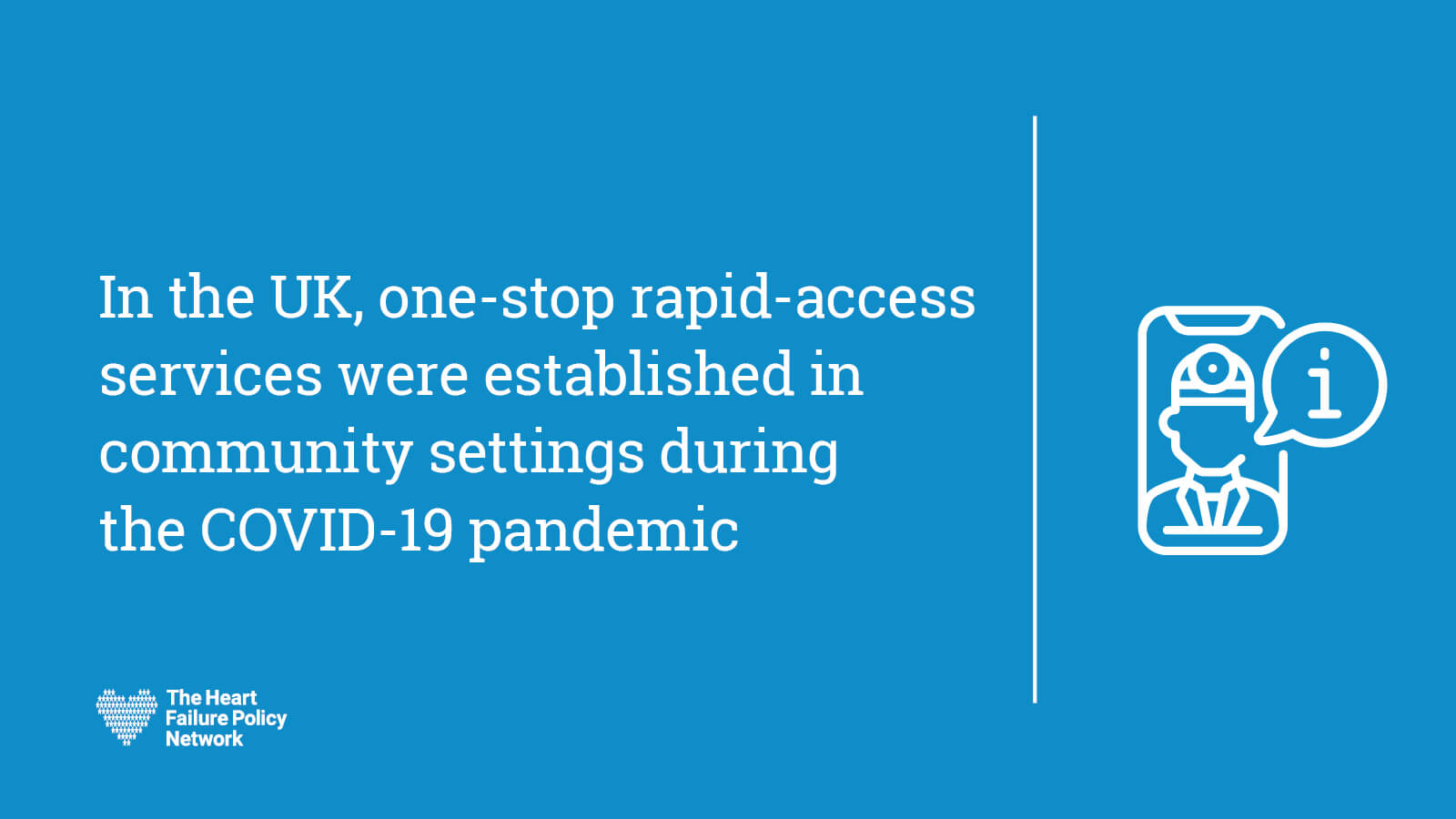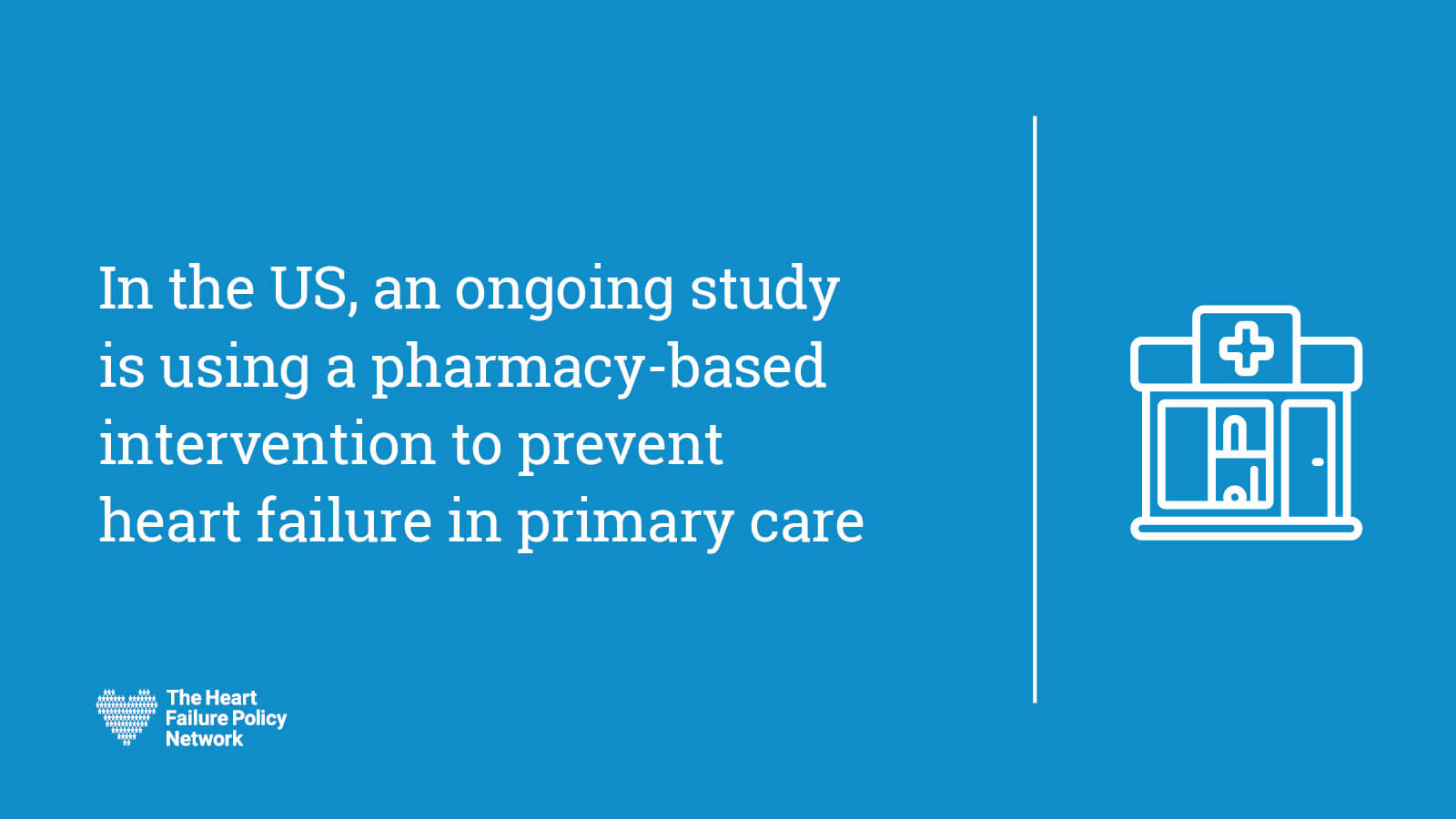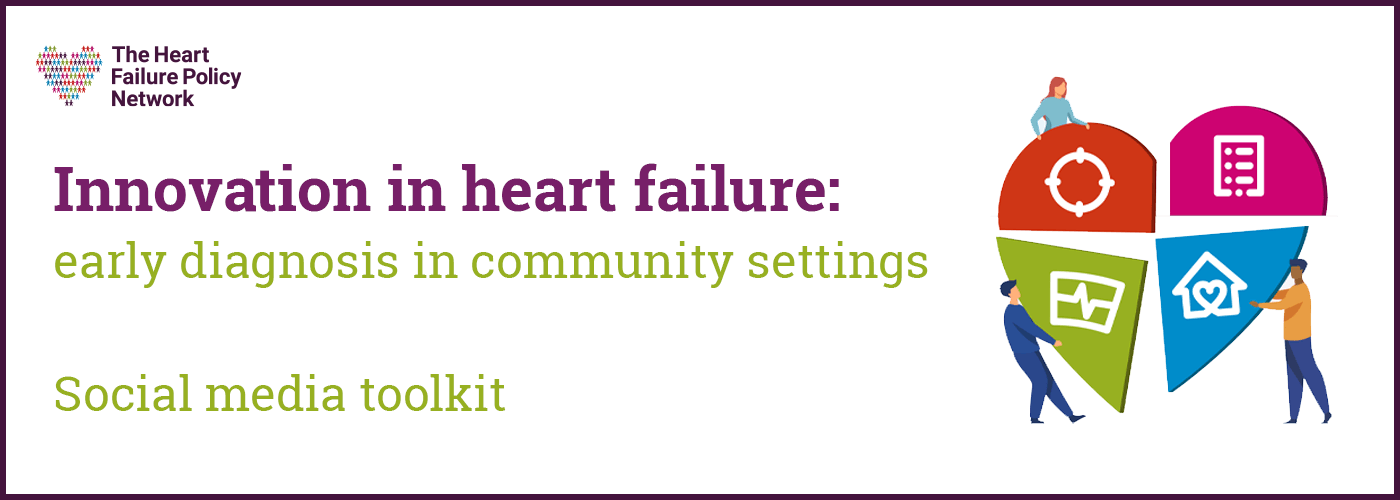
Introduction
In December 2022, the Heart Failure Policy Network (HFPN) launched the report Innovation in heart failure: early diagnosis in community settings. This document examines how innovative approaches and technologies can strengthen the diagnosis of heart failure in community settings, such as primary care services.
Why it matters
Heart failure is often diagnosed at a late stage, leading to worse outcomes. Most people with heart failure are only diagnosed when they are in hospital. This is despite data from the UK showing that one in three of these people have previously presented in primary care with tell-tale symptoms of heart failure.
Early diagnosis is essential to achieve better management and outcomes for people living with heart failure, including the reduction of costly, disruptive and distressing hospitalisations.
As populations continue to age, more and more people are likely to develop heart failure, so effective, sustainable means of diagnosis that can be used in community settings will continue to become more necessary.
The HFPN report Innovation in heart failure: early diagnosis in community settings explores common challenges in heart failure diagnosis and presents four major opportunities for innovation in community-based settings:
- Targeted screening in high-risk groups
- the use of point-of-care devices
- detection via electronic health records
- the redesign of healthcare services.
Sample social media messages
These social media posts have been developed to promote the report Innovation in heart failure: early diagnosis in community settings.
Please share the following messages via your social media channels. You are welcome to adjust the posts to best address your audience or use them as inspiration to write your own.
Making the case for HF diagnosis
There is a missed opportunity to diagnose #HeartFailure early in community settings before hospitalisation is needed. Learn how a range of innovations could help in the latest report by @HFPolicyNetwork: https://www.hfpolicynetwork.org/project/innovation-early-diagnosis-in-community-settings
In a new report, @HFPolicyNetwork makes the case for shifting #HeartFailure diagnosis to community settings. This has the potential to prevent heart damage, hospitalisations and premature death. Read it here: https://www.hfpolicynetwork.org/project/innovation-early-diagnosis-in-community-settings
Early identification of #HeartFailure allows for timely treatment and better outcomes – it can reduce hospital admissions by 34%. Find out how innovation can enable early diagnosis by reading the report from @HFPolicyNetwork: https://www.hfpolicynetwork.org/project/innovation-early-diagnosis-in-community-settings
Challenges to early HF diagnosis
As #HeartFailure symptoms are non-specific, the condition is often misdiagnosed. Read about the challenges and opportunities for innovation in heart failure diagnosis in this report by @HFPolicyNetwork: https://www.hfpolicynetwork.org/project/innovation-early-diagnosis-in-community-settings
We need to improve access to diagnostic tests across Europe. How can we alleviate the delays and uncertainty that people with #HeartFailure face before receiving a diagnosis? Find out in this report from @HFPolicyNetwork: https://www.hfpolicynetwork.org/project/innovation-early-diagnosis-in-community-settings
We need to ensure early #HeartFailure diagnosis in women. In the UK, women are twice as likely as men to be misdiagnosed, and they wait six times longer to receive the correct diagnosis. Read more about the case for early diagnosis in this report @HFPolicyNetwork: https://www.hfpolicynetwork.org/project/innovation-early-diagnosis-in-community-settings
Opportunities
We know that certain groups of people are at higher risk of #HeartFailure but often remain undiagnosed – it’s time to do something about this. Read about how innovative tools can help us catch heart failure early in this @HFPolicyNetwork report: https://www.hfpolicynetwork.org/project/innovation-early-diagnosis-in-community-settings
Electronic health records can help predict and detect #HeartFailure early. How can we make better use of them to improve heart failure diagnosis? Find out more in this report from @HFPolicyNetwork: https://www.hfpolicynetwork.org/project/innovation-early-diagnosis-in-community-settings
Point-of-care devices could speed up #HeartFailure diagnosis in community settings, significantly reducing diagnostic waiting times and enabling timely treatment. Read more about this and other innovations in this @HFPolicyNetwork report: https://www.hfpolicynetwork.org/project/innovation-early-diagnosis-in-community-settings
Across Europe, there is a missed opportunity to diagnose heart failure early. Identifying people with heart failure in community settings would make it possible to provide timely treatment, prevent hospitalisations, improve outcomes and save lives. The Heart Failure Policy Network has recently published a new report that examines the four main areas where innovation could make a difference:
- Enhanced targeting of high-risk groups
- Electronic health records
- Point-of-care devices
- Redesigned healthcare services
Find out more in the full report here: https://www.hfpolicynetwork.org/project/innovation-early-diagnosis-in-community-settings
In recent years innovative tools and approaches have emerged to improve heart failure diagnosis. He new report published by the Heart failure Policy Network: ‘Innovation in heart failure: early diagnosis in community settings’ outlines the urgent need to boost timely diagnosis and presents a variety of promising initiatives to give a taste of the possible future of heart failure diagnosis. In the report, we discuss four main areas where innovation could make a difference:
- Enhanced targeting of high-risk groups
- Electronic health records
- Point-of-care devices
- Redesigned healthcare services
Find out more in the full report here: https://www.hfpolicynetwork.org/project/innovation-early-diagnosis-in-community-settings
Social media assets
Click on an asset to download it or download the full pack here.

